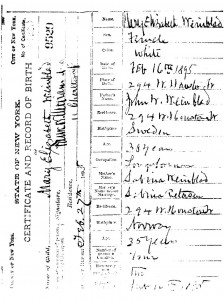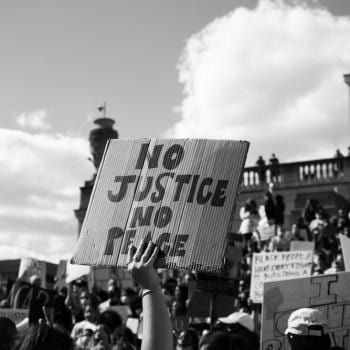This week the Obama administration created a furor in a letter to schools and universities clarifying the rights of transgender students and the use of public bathrooms. Now obviously for conservatives this brings up a whole host of moral and theological issues, which other bloggers have well documented. What I’d like to try and tackle are the logical fallacies and unintended consequences of the transgender bathroom directive.
In society today, we have few sacred documents. Contracts can be broken, a signature does not hold the weight of law, bankruptcy can help you avoid the debt you’ve amassed. Yet two documents have remained sacred: the birth certificate and death certificate. We can definitively say when someone was born and when someone dies. The information on those certificates has been regarded as irrefutable and immovable until last week.
With the letter from the Justice Department interpreting the law when it comes to transgender bathroom policies, it begins to erode the societal trust that we put in a birth certificate. Suddenly items (like gender) are open to interpretation. If a person’s internal gender identity changes from the one assigned to that person at birth, then the birth certificate is wrong. Your internal identification trumps all. This is the apex of moral relativism and has been the argument behind the transgender movement for years.
Now with the official White House blessing, the erosion of something as sacred as our birth certificate is accelerating. And here are the unintended consequences: there are many other vital records recorded on the birth certificate, which are now open to internal interpretation.
For instance, your date and time of birth are recorded on your birth certificate. But what if you begin to believe that your internal age is different than the age assigned to you? What if you’re 13 years old and want to purchase alcohol? Shouldn’t your internal age identification trump the age arbitrarily assigned to you on a piece of paper? What if you wish to have sex with someone below the age of consent? As long as their internal age is above the age of consent, you get the picture. What if you want to start collecting social security early? Simply advance your internal age identification and start collecting from the government. They wouldn’t discriminate against you because of something as arbitrary as the age on your birth certificate, would they?
Your race is also listed on a birth certificate, but what if that is arbitrarily assigned as well? Rachel Dolezal used this exact argument as a white woman to self-identify as black, even heading up a local chapter of the NAACP. She was publicly shamed for her attempt to circumvent her race as listed on her birth certificate. Yet if a birth certificate is open to interpretation, then she should be able to self-identify as anyone she wants to. When students are applying for college scholarships, they should have the right to self-identify as whatever race gets them the most scholarships, not the one arbitrarily assigned to them by their parents on their birth certificate.
Speaking of parents, they are also listed on the birth certificate. But what if a child is having a fight with their parents and begins to self-identify as someone else’s child? Sure that child can go through the lengthy court process to emancipate themselves, but shouldn’t switching parents be as simple as self-identifying with someone else? Why should children be forced to live and obey their parents simply because a piece of paper arbitrarily listed them as the biological parents?
These are just a few of the logical consequences of what may happen now that we’ve opened the door to interpret something as universally sacred as a birth certificate.
Thoughts?












